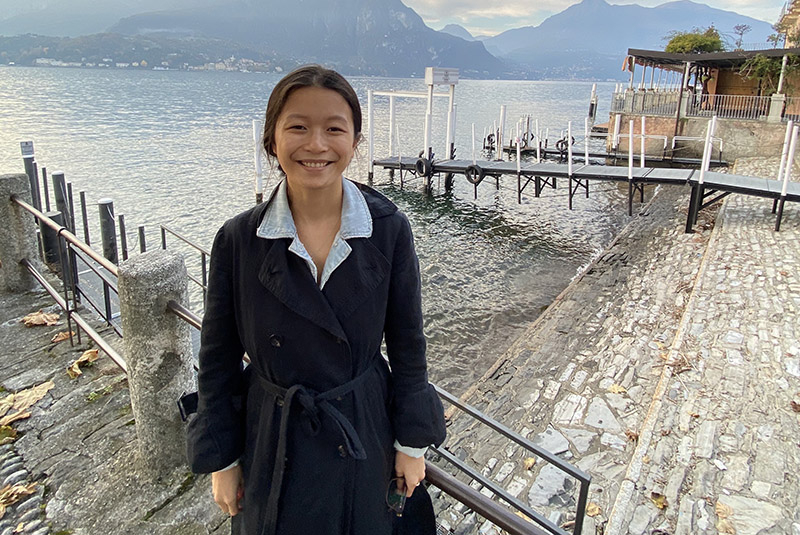An Interdisciplinary and Comparative Approach to China Across Three Campuses

Bochen Han
MAIR '21
First Year: HNC
Q: What encouraged you to apply to Johns Hopkins SAIS?
A: As someone with little prior exposure to economics, SAIS made sense as the school that could help me become conversant in international economics while allowing me to explore and deepen my interest in other areas of study. As someone who was working in the interdisciplinary spaces of international human rights and development, and who was consistently engaging in conversations about China, I often felt that I was missing a crucial framework for seeing the world.
I was also drawn to SAIS’s strength in international development and China studies. I liked the idea of being able to access difficult-to-reach perspectives through courses on China with Chinese academics at the Hopkins-Nanjing Center and then following that up with coursework in DC that could help me unpack my development experiences from Southeast Asia.
Q: What were you doing prior to attending SAIS?
A: I spent a year in Thailand, doing communications, advocacy, and research at the regional UN Human Rights Office and then at a Burmese human rights organization on Thailand’s border with Myanmar. Then I ventured into Myanmar itself, where I supported the country’s first municipal elections with universal suffrage, and wrote grants for a Burmese technology social enterprise tackling issues like hate speech, maternal health, and municipal governance. Before going abroad, I had short China-focused stints at the Council on Foreign Relations, Freedom House, and The Diplomat.
Q: What was your experience like living in Nanjing, China while studying at The HNC?
A: Though I was born in China and visit regularly, I haven’t spent more than a few months there at a time since immigrating to Canada at age six. I was surprised to experience some culture shock while living with my Chinese roommate, and also while working closely with Chinese teammates on a months-long Moot Court competition. Because the pandemic shut down The HNC, I unexpectedly spent most of my second semester living and interning at the Linden Centre, a heritage hotel and cultural center in southwestern China founded by an HNC alum -- which ended up being an eye-opening foray into the Chinese workplace.
Pandemic-related restrictions in DC also gave me the unexpected opportunity to opt for in-person classes at SAIS Europe in Bologna, Italy for my third semester. Though I had never considered how Europe could fit into my path, I found it surprisingly easy to find European connections to my interests-- such as through learning about African migrants and the Chinese diaspora in Italy.
Q: What extracurricular activities have you been involved with as a student?
A: I’m doing a practicum through SAIS Women Lead, working in a four-person team to evaluate a women-oriented socioeconomic program in Tanzania. Through the experience, I’ve learned a lot about how to communicate with people from different cultural and disciplinary backgrounds and how to navigate the challenges of remote research.
I’ve also really appreciated the professional mini courses organized by the Co-curricular and Experiential Learning Office (CCEL). I’ve presented a State Department briefing, dissected op-eds, and delved into business case studies with former PepsiCo Vice Chairman Mike White. These courses allowed me to explore skills not covered through my normal coursework.
Finally, I’ve been taking part in the student-run US-China Dialogue, and have found it enriching talking to peers approaching China from non-area-studies perspectives, as well as the China Studies Happy Hours, where I get to interact regularly with non-SAIS academics.
Q: What do you hope to do with your degree after you graduate?
A: I am currently a Research Associate at Freedom House and will continue my work there, focusing primarily on Chinese censorship and surveillance, as well as China’s global media influence. In the future, I hope to explore non-advocacy approaches to promoting human rights, possibly through international education, law or journalism.
Back to Student Stories